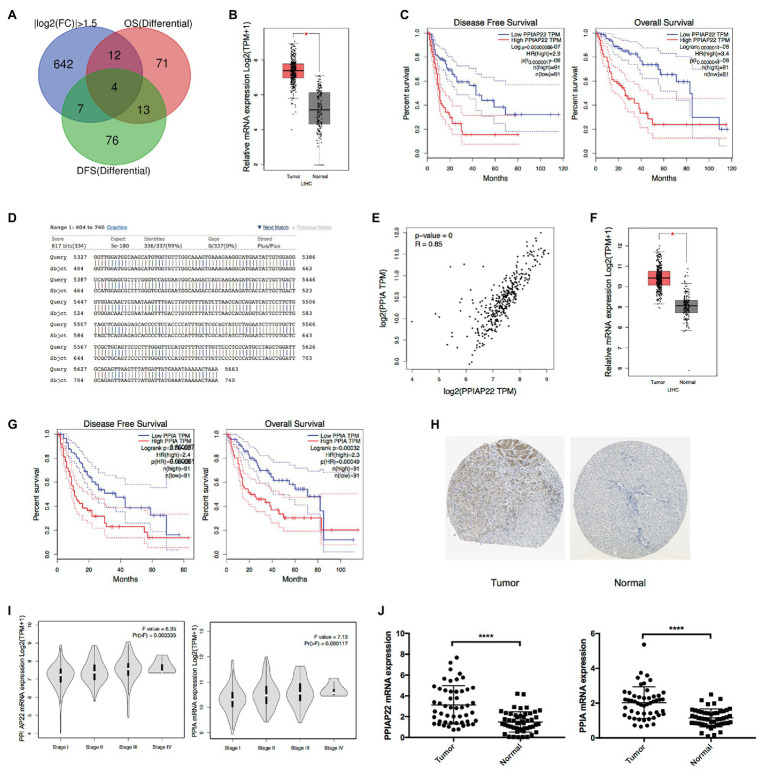Figure 1.
Upregulated peptidylprolyl isomerase A pseudogene 22 (PPIAP22) and peptidylprolyl isomerase A (PPIA) are significantly predicted poor prognosis of hepatocellular carcinoma (HCC) patients. (A) Bioinformatics analysis of differential genes with a log2 fold change ≥|1.5|, p < 0.05, and with significant associations with overall survival (OS) and disease-fee survival (DFS) of HCC patients using Gene Expression Profiling Interactive Analysis (GEPIA). (B) PPIAP22 was upregulated in tumor tissues with HCC compared with normal tissues, analyzed with GEPIA using the Cancer Genome Atlas (TCGA) and GTEx databases. (C) Prognostic values of PPIAP22 in HCC analyzed with GEPIA. The dotted lines represent the 95% CI. (D) Sequence similarity between PPIAP22 and its parental gene PPIA. (E) Correlation analysis between PPIAP22 and PPIA in HCC using GEPIA. (F) PPIA was upregulated in tumor tissues with HCC compared with normal tissues, analyzed with GEPIA. (G) Prognostic values of PPIA in HCC analyzed with GEPIA using TCGA and GTEx databases. The dotted lines represent the 95% CI. (H) The expression of PPIA was analyzed using immunohistochemistry from the Human Protein Atlas database. (I) The correlation between PPIAP22 or PPIA mRNA expression and the clinic stage of HCC patients were analyzed with GEPIA. (J) PPIAP22 and PPIA mRNA expression levels were higher in tumor tissues than in normal (50 pairs, p < 0.0001). PPIAP22, peptidylprolyl isomerase A pseudogene 22; PPIA, peptidylprolyl isomerase A; and HCC, hepatocellular carcinoma. *p < 0.05; ****p < 0.0001, respectively.

